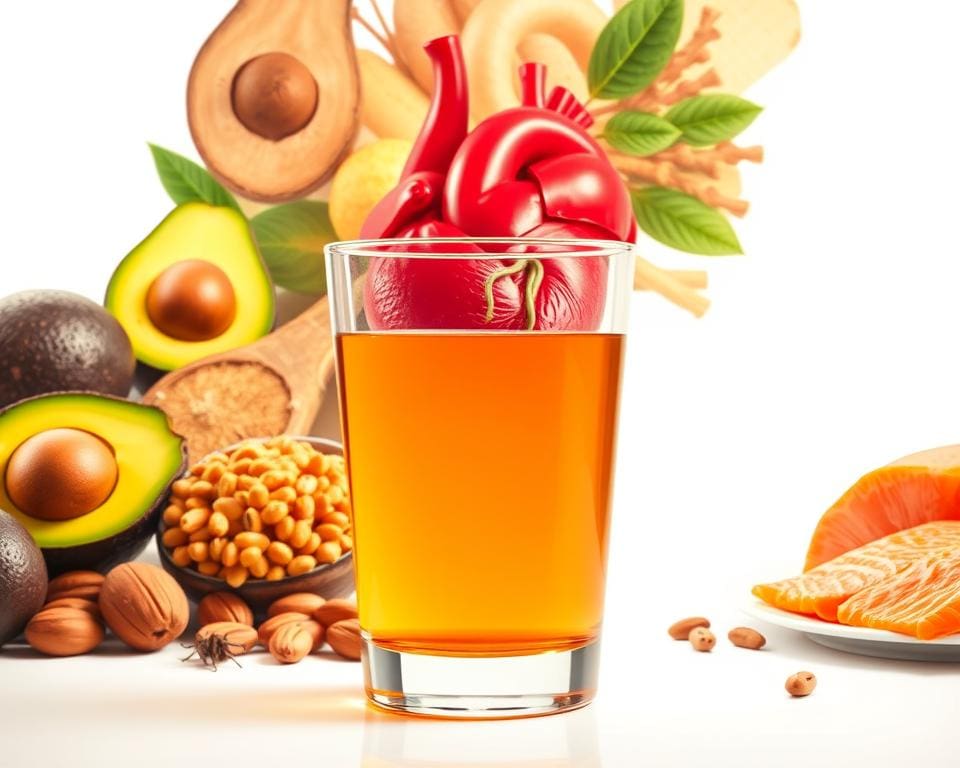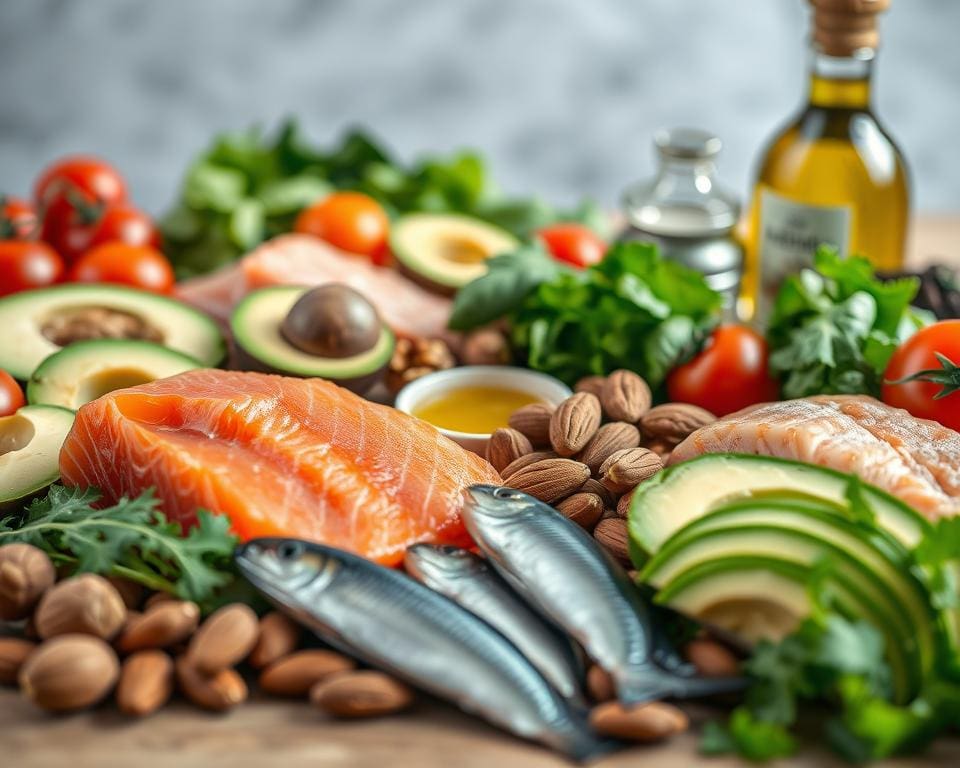Understanding what foods have good cholesterol is essential for maintaining heart health. High-density lipoprotein (HDL) cholesterol plays a pivotal role in transporting cholesterol away from the arteries and back to the liver for excretion, thus reducing the risk of heart disease. Numerous scientific studies highlight the benefits of incorporating foods that are high in good cholesterol into your diet. By focusing on heart-healthy foods, you can improve your overall well-being while also lowering levels of harmful cholesterol. Embrace a balanced diet rich in HDL to support your cardiovascular health and lead a more vibrant life.
The Importance of HDL Cholesterol
Understanding the importance of HDL cholesterol is essential for maintaining optimal heart health. Known as the “good cholesterol,” HDL serves a crucial role in managing our body’s cholesterol levels and reducing the risk of heart-related diseases. This knowledge empowers individuals to take proactive measures towards better cardiovascular wellbeing.
What is HDL Cholesterol?
HDL, or high-density lipoprotein, is a type of fat molecule that plays a pivotal role in the transport and removal of cholesterol from the bloodstream. Characterised by its unique lipid-protein composition, HDL works by picking up excess cholesterol from various tissues and delivering it to the liver for excretion. This function highlights the significance of HDL cholesterol in regulating overall cholesterol levels within the body.
The Role of HDL in Heart Health
HDL cholesterol contributes significantly to heart health by combating the buildup of plaque in the arteries. Studies show that higher levels of HDL are linked to a substantially lower risk of coronary artery disease. Furthermore, HDL possesses anti-inflammatory properties, aiding in the reduction of inflammation within the cardiovascular system. By enhancing the removal of cholesterol, HDL plays a vital role in maintaining healthy arteries and preventing numerous cardiovascular conditions.

What Foods Have Good Cholesterol
Incorporating HDL rich foods into your meals can significantly benefit your overall heart health. These foods not only provide essential nutrients but also contribute to increasing good cholesterol levels in the body. Consider integrating the following selections into your diet, as they are known for their heart-healthy properties.
Top HDL Rich Foods
- Fatty fish such as salmon and mackerel
- Nuts, particularly almonds and walnuts
- Olive oil, a cornerstone of Mediterranean diets
- Avocados, full of beneficial monounsaturated fats
Incorporating Good Cholesterol Foods into Your Diet
Making small adjustments to your daily diet can lead to significant health benefits. One effective approach includes adding a handful of nuts to your breakfast, which boosts energy while aiding in cholesterol management. Consider using olive oil as a salad dressing, steering clear of saturated fats commonly found in heavy dressings. These simple swaps contribute to a cholesterol-friendly diet, making healthy eating both enjoyable and accessible.
Healthy Fats and Their Benefits
Understanding the distinction between healthy and unhealthy fats is crucial for maintaining overall health. Healthy fats play a significant role in the diet, contributing to improved heart health and elevated levels of HDL cholesterol. By incorporating the right types of fat, individuals can enjoy numerous health benefits while delighting in delicious foods.
Understanding Healthy Fats
Healthy fats primarily include monounsaturated and polyunsaturated fats. These types of fats are essential in promoting good cholesterol levels while lowering the harmful LDL cholesterol. The benefits of healthy fats extend beyond just cholesterol management. They support brain function, reduce inflammation, and can even assist in weight management when consumed in moderation. Embracing healthy fats can lead to a more balanced diet, ultimately enhancing well-being.
Sources of Healthy Fats for Your Diet
Finding sources of healthy fats to include in your meals is easier than you might think. Consider the following options:
- Avocados: Rich in monounsaturated fats and fibre.
- Nuts: Almonds, walnuts, and pistachios are fantastic options packed with nutrients.
- Seeds: Chia, flaxseeds, and pumpkin seeds contribute omega-3 fatty acids.
- Fatty Fish: Salmon, mackerel, and sardines provide essential omega-3s.
- Olive Oil: A staple of the Mediterranean diet known for its heart-healthy benefits.
Incorporating these sources of healthy fats into meals can transform your diet, leading to improved health outcomes and a more satisfying culinary experience.
Heart-Healthy Foods to Consider
Incorporating heart-healthy foods into your diet can significantly enhance your overall health while supporting cholesterol management. Focusing on a variety of fruits and vegetables, along with whole grains, creates a solid foundation for a healthier lifestyle.
Fruits and Vegetables High in Good Cholesterol
Fruits and vegetables play a pivotal role in promoting heart health. Options such as berries, oranges, and leafy greens are not only rich in vitamins and minerals but also abundant in antioxidants and fibre. These nutrients contribute to optimal cholesterol levels by assisting in its management. A diet that includes a colourful array of fruits and vegetables can provide a multitude of health benefits, helping to lower the risk of heart disease.
Whole Grains and Their Health Benefits
Whole grains, such as oats and brown rice, are key players in a cholesterol-friendly diet. These grains are high in soluble fibre, which helps reduce cholesterol absorption in the bloodstream. Including whole grains in meals can promote heart health while providing sustained energy and essential nutrients. Embracing these heart-healthy foods creates a comprehensive approach towards achieving a balanced and nutritious diet.
Creating a Cholesterol-Friendly Diet
Embracing a cholesterol-friendly diet is a transformative journey towards improved heart health, and it begins with mindful dietary changes. By prioritising foods rich in HDL cholesterol, such as avocados, fatty fish, and nuts, individuals can significantly enhance their heart-healthy eating habits. Reducing the intake of processed and sugary foods is equally vital, as these can contribute to unhealthy cholesterol levels and overall heart risk.
Meal planning plays an integral role in achieving a balanced diet, providing structure and ensuring that heart-healthy options are always within reach. One can cultivate a system where wholesome ingredients are readily available, making it easier to opt for nourishing choices. Incorporating a variety of fruits, vegetables, and whole grains serves not only to support good cholesterol but also to enrich the diet with essential nutrients, creating a holistic approach to nutrition.
For personalised guidance, consulting a healthcare professional or nutritionist can provide tailored advice that meets individual dietary needs. This partnership ensures that your journey towards a cholesterol-friendly diet is effective and secure, empowering you to make informed decisions about your food choices. Embrace these changes with dedication, and witness the positive impact on your heart health and overall well-being.









